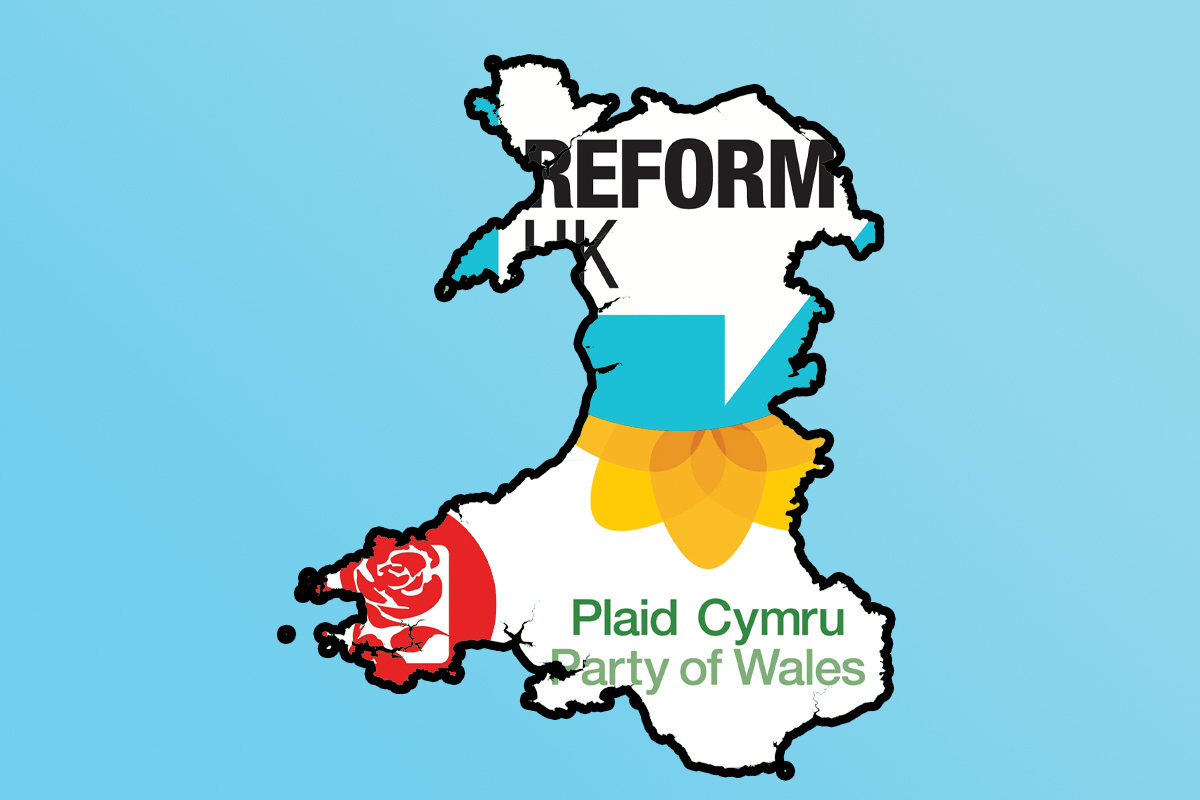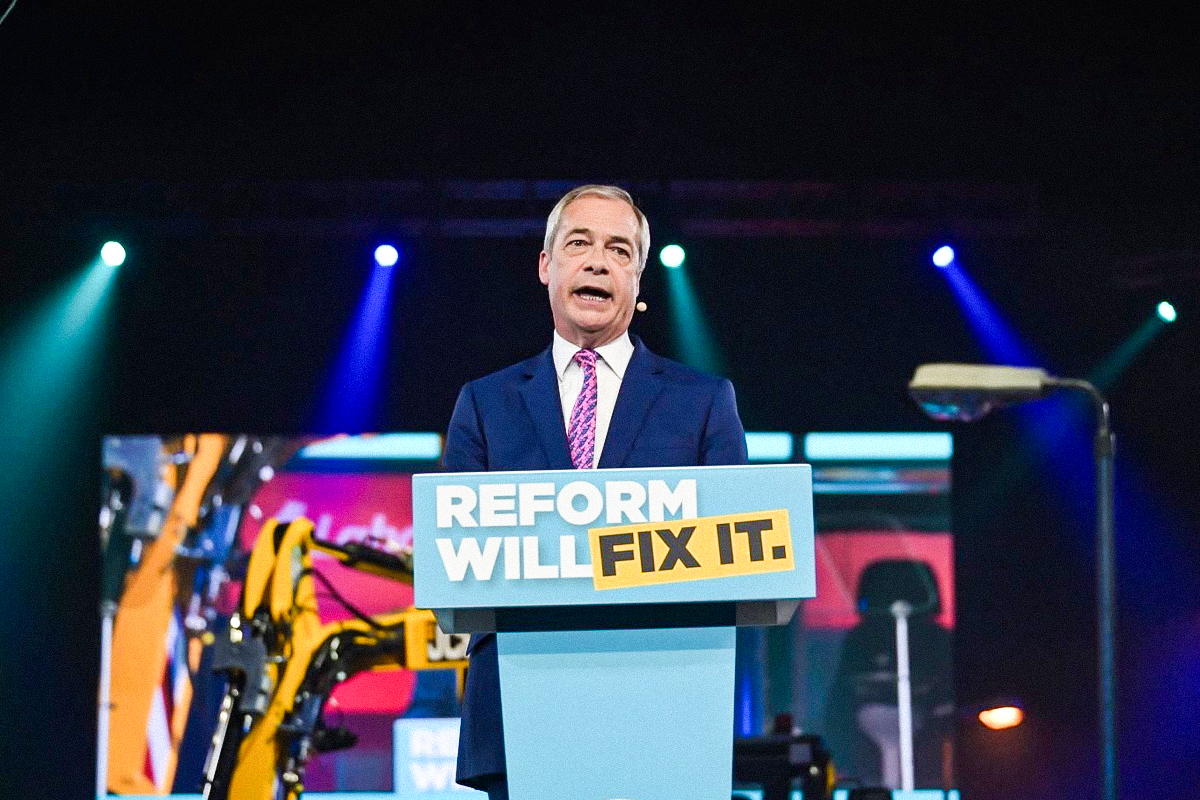A series of bombshell polls have been released recently showing a massive collapse in support for Welsh Labour. One survey indicated a mere 18 percent support for Welsh Labour, with 25 percent going to Reform UK and 30 percent to Plaid Cymru. Another showed Reform polling 25 percent, with Labour and Plaid tied at 21 percent.
This has produced considerable consternation in the Labour ranks, with the results threatening the party’s position in the Senedd (the Welsh devolved parliament) – and potentially creating a three-way split at the Welsh elections in May next year, shattering the relative ‘stability’ in Welsh politics.
Managed decline

Welsh Labour has dominated the political landscape in Wales for over 100 years. In every general election since 1922, Labour has won a majority of MP seats throughout Wales. And it has been the largest party in the Senedd since its inception in 1999.
At the same time, the past four decades have been a period of managed decline, with colossal attacks on the working class.
The closure of the mines in the 1980s, the deindustrialisation of the South Wales valleys, and the eviscerating of entire communities have led to soaring unemployment rates and a massive collapse in living standards.
To this day, Wales consistently reports the highest economic inactivity rate of anywhere in Britain – currently standing at 28.1 percent of the working population, compared to a 22.2 percent UK average.
Austerity over the last 20 years has only exacerbated this: huge cuts to healthcare, GPs and access to public services; cuts to local government funding; and cuts to transport and infrastructure. The closures at Port Talbot are only the latest chapter.
Even culture has not escaped the chopping block. Wales is second-to-last in terms of cultural spending per person in European countries on arts and music – a tragic irony for the Land of Song.
This collapse in living standards was particularly on show during the COVID pandemic, with some of the highest death rates in Britain being reported in the South Wales valleys, some of the poorest and most deprived areas in the country.
Cuts and betrayal
Of course, nothing has changed with the new Labour government in Westminster. We’ve seen the threats of massive closures and layoffs at Cardiff University, alongside looming cuts to the NHS.
Starmer’s cuts to disability benefits will have a catastrophic effect in Wales, having some of the highest rates of benefits claims in the UK – over 10 percent of the population.
This entire period of decay and decline has been overseen by Welsh Labour.
In recent years, Welsh Labour has gone from being historically supported by virtue of tradition, to passively supported. Attempts by local politicians to deflect any blame onto previous Conservative governments in Westminster did nothing to help.
Now the mood is changing to a sense of outright betrayal. This provides fertile ground for anyone with moderately anti-establishment credentials.
This explains the rise in support for Reform UK in Wales, with its promises of ‘reindustrialising Britain’ and demagogic appeals to left-behind communities.
It is precisely in the South Wales valleys where Reform finds its base in Wales.
In a twist of historic irony, last year, Nigel Farage chose to announce his general election manifesto from Merthyr Tydfil: the home of the Merthyr Rising, and the first place the red flag was flown on British shores.
Political polarisation

This anti-establishment mood also finds other partial expressions – in particular amongst young people.
A recent poll found that 41 percent of people would support Welsh independence, for example, up from 18 percent in 2023. This figure increases to 53 percent among 18-24 year-olds, and 72 percent among 25-34 year-olds.
All of this is nothing less than the local reflection of the polarisation seen across British politics, as the centre ground collapses and the political landscape fragments.
Due to the betrayal of Welsh Labour, the ensuing political vacuum, and the lack of any left alternative, Reform is making gains amongst a section of the working class.
A section of the youth, meanwhile, are looking towards independence as a way out of the crisis. And there are large layers who disdain all the political parties.
Revolutionary alternative
Eluned Morgan, the Welsh First Minister, can see the writing on the wall.
In recent days, she has come out in lukewarm fashion against Starmer’s welfare cuts. Morgan says she will pursue a “red Welsh way” and will “not stay silent” if the Prime Minister “makes decisions that we think will harm the Welsh communities”.
Morgan’s comments suggest that some within the Labour right recognise the massive anger against Starmer’s austerity agenda, and are trying to distance themselves from this.
But for the majority of Welsh workers, these comments will be a case of too little, too late.
Whatever happens in the next Senedd elections, one thing is certain: the unfolding political situation in Wales will be one of extreme volatility. The past era of relative political calm and stability is over.
This is why our comrades throughout Wales will continue to fight for a communist alternative – connecting with those drawing revolutionary conclusions, and building the RCP.






